Over the last number of years, the global climate crisis has come to dominate news headlines and is now at the forefront of policymaking for many governments, particularly in Europe.
And as the general public has grown more aware of global warming, certain sectors of the economy, such as the fossil fuel industry, have come in for very close scrutiny for the impact they have on our climate.
Despite being a core part of our diet, let alone our evolution as human beings, meat is also a product that has been on the receiving end of sharp criticism from certain elements of the climate movement. The methane produced by cattle is repeatedly cited as one of the main drivers of global warming.
Unsurprisingly, farmers feel deeply aggrieved and unfairly targeted by those calling for an end to meat consumption and a transition to plant-based diets when no mention is given to the carbon sequestration potential of their grassland soils or of the high nutritional density of meat proteins.
Is it any wonder that many farmers see climate change as a major threat to their livelihoods when, in reality, they have a crucial role to play in helping Europe achieve carbon neutrality by 2050 under its new Green Deal.
Consumer
Yet for all the noise, there are those who are quietly standing up for Irish farming where it counts – with the consumer. Hilton Food Group, the retail meat packer with a site in Drogheda, is just one example of this.
While operating below the radar slicing and packing meat for its retail partners, Hilton is a giant within the food supply chain selling more than 370,000t of beef, pork, lamb poultry, seafood and prepared foods last year.
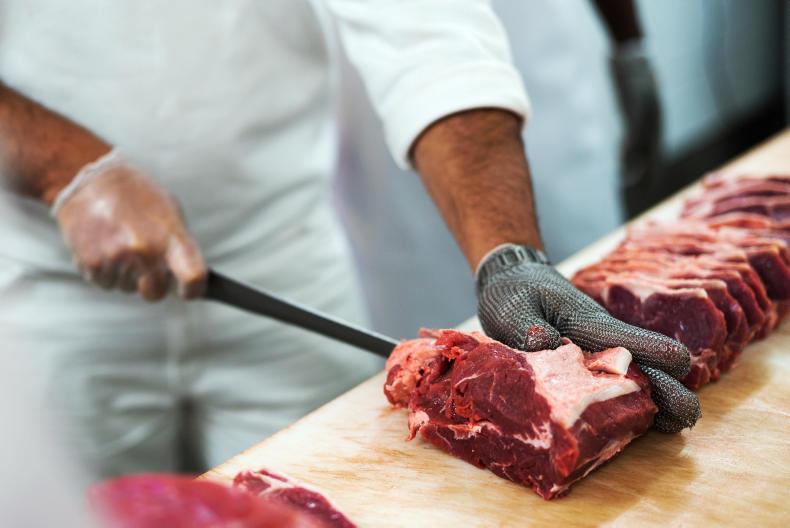
The company has an annual turnover of more than £1.8bn (€2.1bn) and sales to customers in 15 countries, including almost all of Europe and Australia.
Hilton’s route to market is via the retail channel and its key customers are some of the largest supermarket chains in Europe and Australia.
The company does not buy directly from primary producers. Instead, it sources meat from primary meat processors before producing meat products for its retail partners, mostly under own-brand labels.
Leveraging its proximity to the end customer, Hilton has become a vocal defender of Irish farming by advocating for the nutritional benefits of eating meat, as well as the environmental credentials of Irish beef, pork and lamb.
Irish farming is already a winner when it comes to sustainability
Nigel Edwards, group CSR director for Hilton Food Group, is at the forefront of this.
“Hilton is hugely proud to sell Irish beef, pork and lamb across a wide range of markets,” says Edwards.
“And we’re fully committed to getting the facts right about meat. Talking about the carbon footprint of meat is only one side to the story. But when you talk about the footprint of meat, combined with the nutritional value of the product, then you have a very different story. That’s the key combination we need to be much more effective as an industry at communicating to the consumer,” he says.
Edwards says that Hilton can give farmers a voice with supermarkets and advocate the scientific evidence that shows the benefits of meat.
He adds that supermarkets want to sell a sustainable product but they’re looking for accurate, scientific measurements from their supply chain to prove the sustainability of the product, be that in terms of environmental impact, animal welfare or the water footprint of meat.
“Irish farming is already a winner when it comes to sustainability. It’s a really sustainable place to produce food because it has an abundance of water and sunshine and really productive soils,” says Edwards.
“We sell meat branded as Irish all over Europe. It’s seen as a premium product because of the production systems in Ireland. And I think the Origin Green programme was a leader in demonstrating that sustainability at farm level,” he adds.
Emissions
Now, farmers are being asked to make changes to some farm practices in order to lower emissions from slurry spreading and chemical fertiliser. However, Edwards is clear that it is not Hilton’s role to go on to farms and start telling Irish farmers how to run their business.
Instead, the company sees itself in a coordinating role within the food supply chain where it can communicate those environmental and emissions improvements directly to customers.
“Our first responsibility at Hilton is to reduce our own carbon and environmental footprint,” says Edwards.
“We’re not going to tell farmers how to run their business but we will collaborate with our supply chain partners to help make farming more sustainable and we can then communicate that to the customer,” he adds.
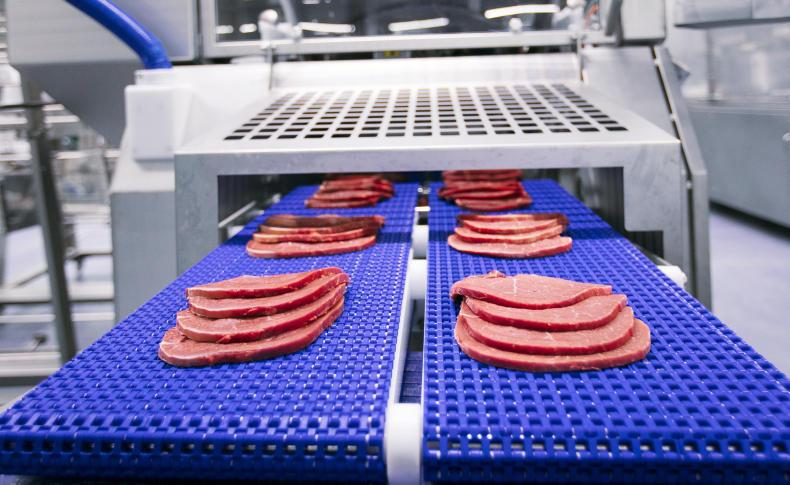
Within its own business, Hilton has set itself a range of ambitious sustainability targets including reducing its water consumption, becoming much more energy-efficient, moving towards fully recyclable or compostable packaging and transitioning to renewable energy sources, where possible.
Packaging, in particular, is an area where many companies can make big improvements. By 2022, Hilton is aiming for 100% of its packaging to be fully reusable, recyclable or compostable. The company also aims to source a minimum of 50% of its plastic packaging needs from recycled sources by 2022. In its UK business, this figure is already at 70% and at 80% in Ireland.
Packaging
New innovations in packaging are also helping the group to reduce costs. Just by reducing the size and weight of packaging, Edwards says the company was able to save 60 tonnes of packaging weight last year.
The added benefit of improved packaging solutions is that it can improve the shelf life of meat products, which is the main way of reducing food waste – a major source of carbon emissions for many western countries.
All of this, says Edwards, is playing into the circular economy. At its processing sites, Hilton has invested heavily in cutting-edge technology such as heat recovery and smart energy management systems to slash its energy consumption.
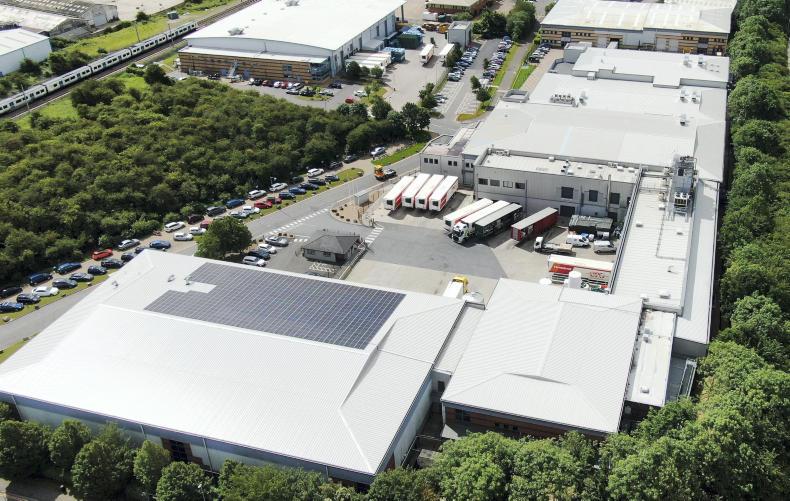
Edwards says Hilton’s Irish plant is among the most energy-efficient across its global operations, where it runs 17 processing plants located in Ireland, the UK, continental Europe and Australia.
At its Irish plant in Drogheda, almost half of the energy needed to heat water for cleaning comes from heat recovery systems, which has allowed Hilton to halve its natural gas bill for heating water.
Some 37,000t of beef, pork, lamb poultry, seafood and prepared foods were sold by Hilton Foods last year
The company has developed ambitious sustainability targets to reduce energy consumption across its global network of processing sites and has partnered with Crowley Carbon, the Irish energy efficiency company, to achieve the energy efficiencies needed to meet these targets.
So far, this focus on energy efficiency has enabled the company to reduce its energy consumption per tonne of output by 28% in the last number of years.
With an energy bill that reaches into millions of pounds every year, these savings add up to a lot for a company the scale of Hilton.
“In Ireland, our factory is now highly automated. And that brings a lot of efficiencies. Not in terms of having less people but in terms of energy efficiency and production efficiency,” says Edwards.
Advocate
They may not always see eye to eye, but Irish farmers and companies such as Hilton Food Group have common cause when it comes to communicating the sustainability of Ireland’s meat supply chain.
For farmers, it should be of some reassurance to know a company with the scale and reputation of Hilton Food Group is advocating on their behalf with important customers in the European retail channel.
As long as we continue to lean on science to illustrate the sustainability of Irish meat production from an environmental and climate perspective, it will ensure there is always a market for Irish produce.
Encouragingly, it will also help to differentiate and add value to Irish meat by showing consumers they can have a sustainable meat product that is nutritious and healthy but not at the cost of the environment or climate.







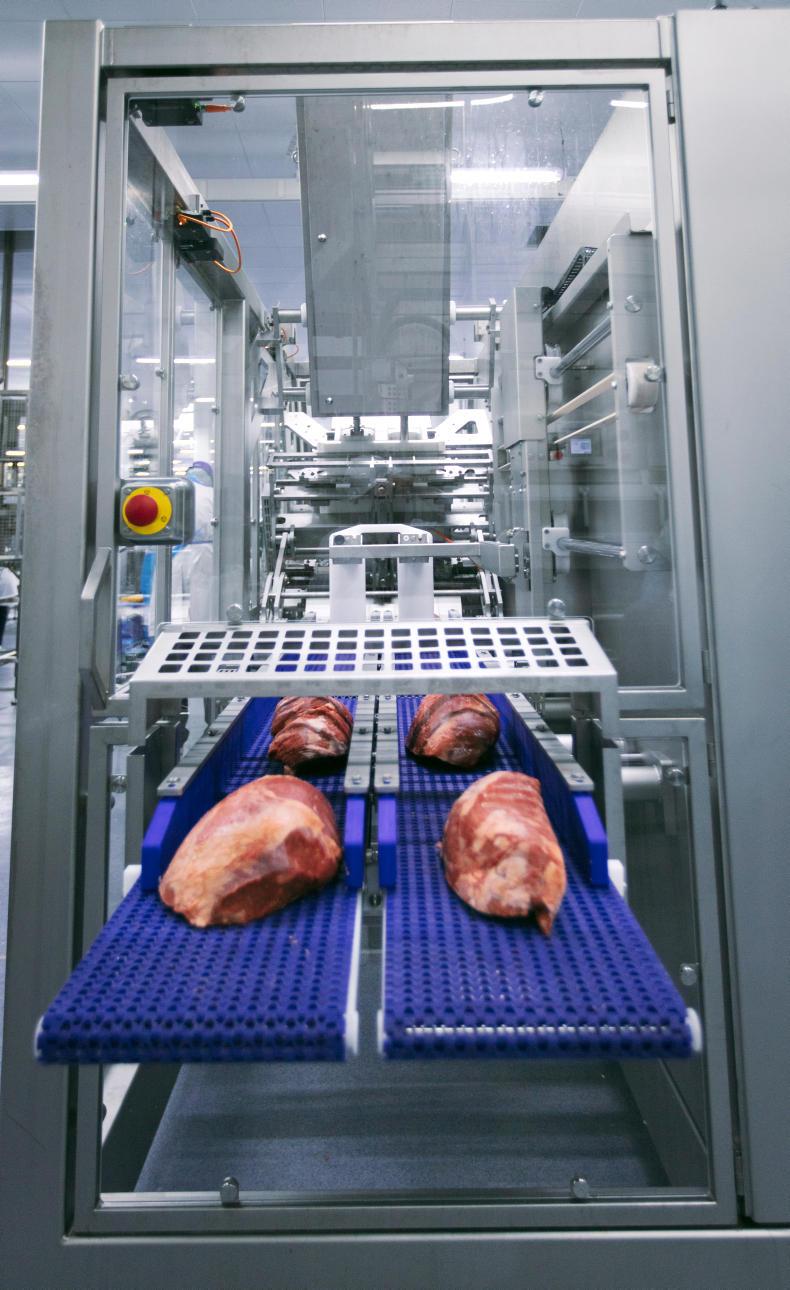

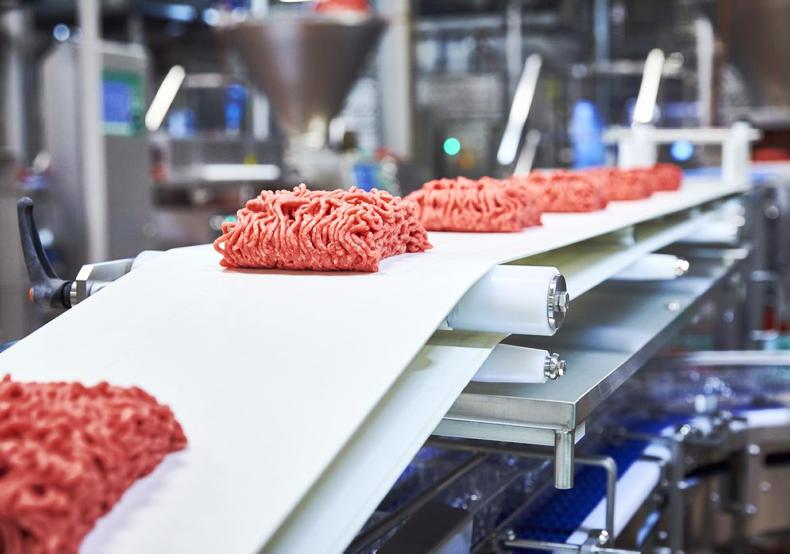
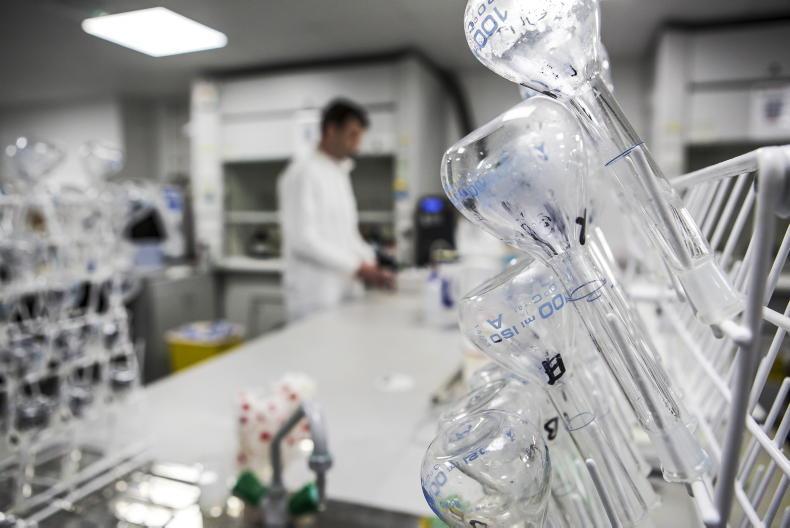
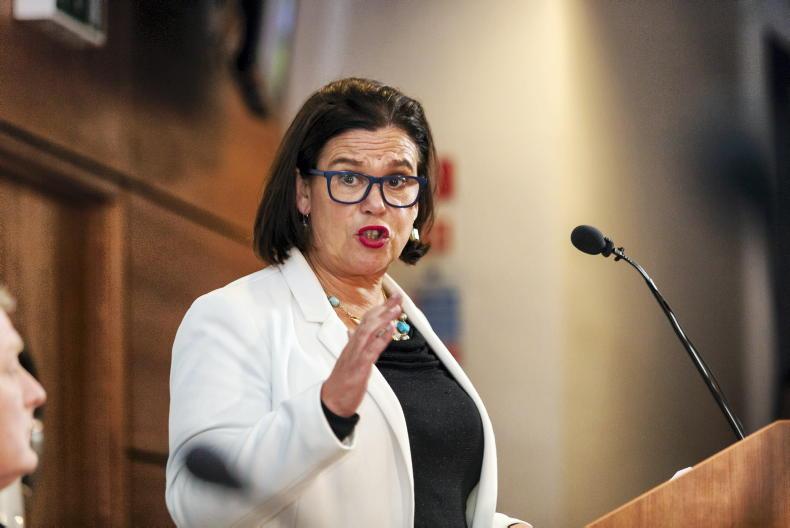
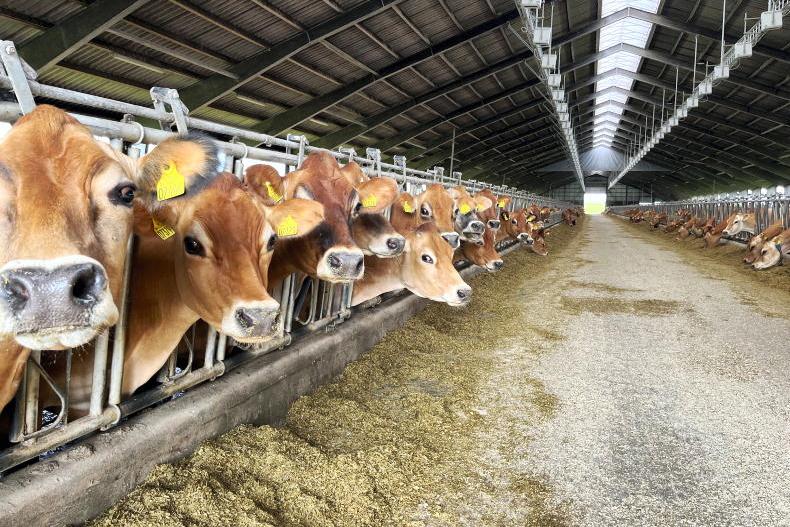

SHARING OPTIONS